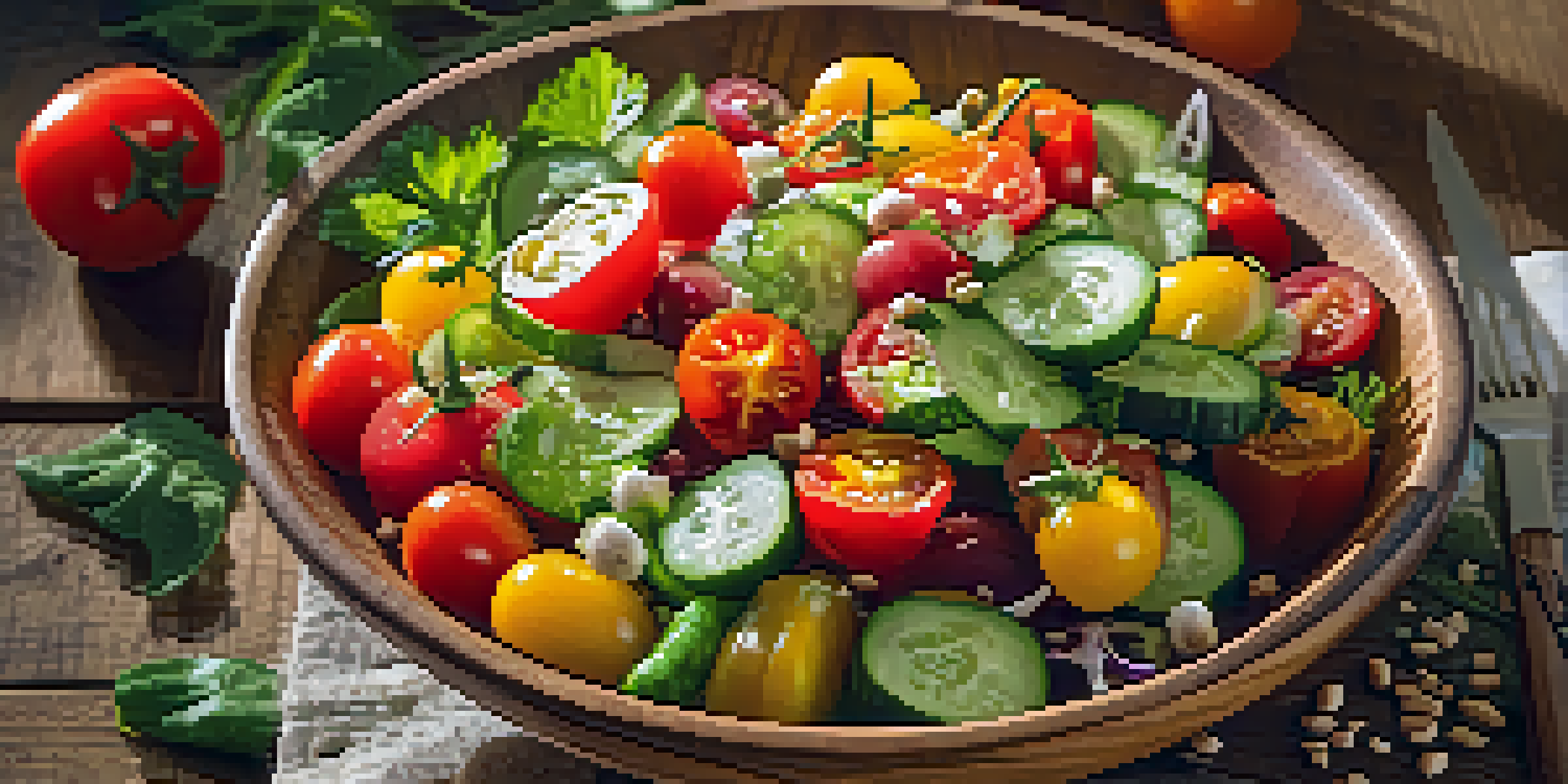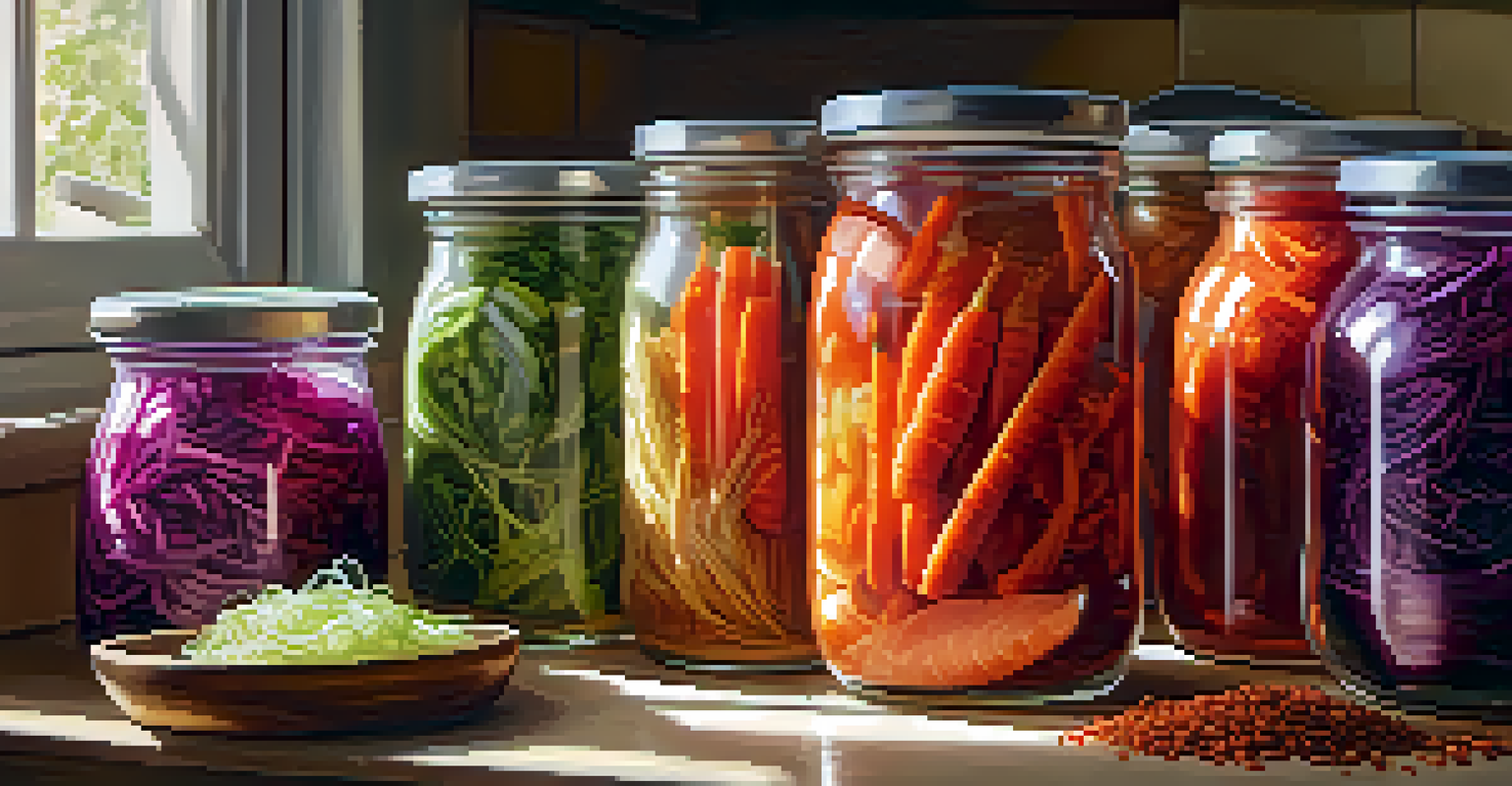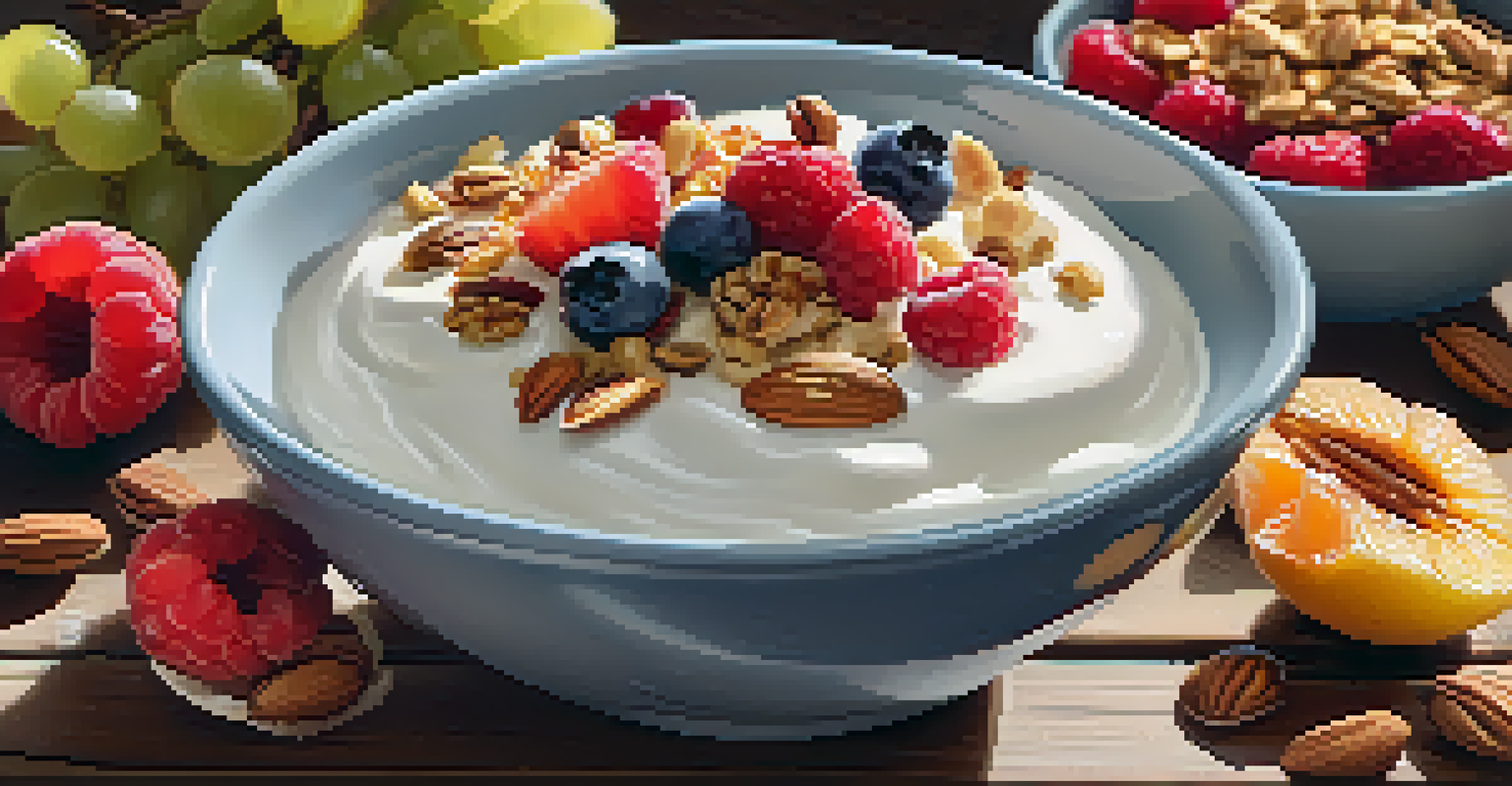Understanding Raw Food: A Beginner's Guide to Fermentation

What is Raw Food and Why Should You Care?
Raw food refers to unprocessed and uncooked foods that retain their nutrients and enzymes. This way of eating is believed to enhance health and vitality, as cooking can sometimes strip away essential nutrients. Many raw food enthusiasts advocate for a diet rich in fruits, vegetables, nuts, and seeds, which can lead to a more vibrant lifestyle.
Let food be thy medicine and medicine be thy food.
One reason people gravitate towards raw food is its potential health benefits. Eating raw can improve digestion, boost energy levels, and support weight management. Plus, it encourages a diet high in fiber and antioxidants, which are great for overall wellness.
If you're curious about raw food, starting with simple recipes like smoothies or salads can be a great way to ease into it. As you become more comfortable, you can explore more complex dishes that highlight the natural flavors of ingredients.
Introduction to Fermentation: A Time-Honored Technique
Fermentation is a process where microorganisms like bacteria and yeast break down sugars in food, creating beneficial compounds. This method not only preserves food but also enhances its flavor and nutritional profile. Think of yogurt, sauerkraut, and kombucha—all delicious examples of fermented foods.

Many people don't realize that fermentation can improve digestion and gut health. The probiotics produced during fermentation help balance the gut microbiome, making it easier for your body to absorb nutrients. This is why fermented foods have gained popularity among those looking to support their digestive systems.
Raw Food Boosts Health & Vitality
Eating unprocessed, uncooked foods can enhance health by preserving essential nutrients and enzymes.
If you're new to fermentation, don't be intimidated! Simple recipes, such as homemade sauerkraut or pickles, can be made with just a few ingredients and minimal equipment. It’s a fun way to experiment with flavors while contributing to your overall health.
The Benefits of Eating Fermented Foods
Incorporating fermented foods into your raw food diet can offer numerous health benefits. These foods are rich in probiotics, which are live bacteria that contribute to a healthy gut. A thriving gut microbiome is linked to improved digestion, better immune function, and even enhanced mood.
Fermentation is the transformation of food and drink by microorganisms, and it is one of the oldest preservation techniques known to humanity.
Moreover, fermented foods can help break down nutrients, making them easier for your body to absorb. For instance, the fermentation process can increase the bioavailability of minerals like iron and zinc, which are crucial for many bodily functions. This means your body gets more out of what you eat!
Consuming fermented foods doesn't have to be a chore. You can add them to your meals in various ways, like topping salads with kimchi or enjoying a glass of kefir in your smoothies. The key is to find what you enjoy and incorporate it into your daily routine.
Getting Started with Fermentation at Home
Starting your fermentation journey at home can be both rewarding and fun! All you need are basic ingredients, a clean jar, and some patience. Many beginners start with simple projects like fermenting vegetables, which are not only easy to make but also delicious and versatile.
To begin, chop your chosen vegetables, add salt, and pack them tightly into a jar. The salt helps draw out moisture and creates an environment for beneficial bacteria to thrive. Seal the jar and let it sit at room temperature for a few days to a week, depending on the desired flavor and tanginess.
Fermented Foods Improve Digestion
Incorporating probiotics from fermented foods can help balance gut health and enhance nutrient absorption.
As you progress, you can experiment with different vegetables, spices, and even fruit ferments. The world of fermentation is vast, and the more you explore, the more you'll discover the unique flavors and health benefits that can enhance your raw food diet.
Common Fermentation Mistakes to Avoid
While fermentation is a relatively easy process, there are common pitfalls that beginners might encounter. One of the biggest mistakes is not using enough salt, which can lead to spoilage instead of fermentation. Remember, salt is essential for creating a safe environment for good bacteria to flourish.
Another mistake is not allowing enough time for the fermentation to develop. Patience is key! Rushing the process can result in bland or unsafe fermented foods. Each batch can vary, so it's important to taste and observe as the fermentation progresses.
Lastly, ensure that your equipment is clean and sanitized. Contaminants can introduce unwanted bacteria into your ferment, leading to undesirable flavors or spoilage. By following proper hygiene practices, you can set yourself up for success in your fermentation journey.
Popular Fermented Foods to Try
There’s a wide variety of fermented foods out there, and trying them can be an adventure for your taste buds! Yogurt is a staple in many diets, providing a creamy texture and tangy flavor that works well in both sweet and savory dishes. Plus, it's a great source of probiotics.
Kefir, a fermented milk drink similar to yogurt but thinner, is another excellent source of probiotics. You can enjoy it plain or blend it into smoothies for a nutritious boost. If you’re looking for something plant-based, consider trying kombucha—a fizzy, fermented tea that comes in various flavors.
Home Fermentation is Easy & Fun
Starting with simple fermentation projects at home can lead to delicious results and a greater appreciation for food.
Don’t overlook fermented vegetables like kimchi and sauerkraut! They add a delightful crunch and tang to meals while also being incredibly versatile. You can use them as toppings, side dishes, or even in sandwiches. The options are endless!
Embracing Raw Food and Fermentation for a Healthier Lifestyle
Embracing a raw food diet combined with fermented foods can lead to a healthier lifestyle filled with vibrant flavors and nutrients. As you explore this culinary journey, you’ll likely discover new favorites and develop a deeper appreciation for fresh, whole ingredients. This path encourages mindful eating and a closer connection to your food.
By choosing raw and fermented foods, you’re not only nourishing your body but also supporting sustainable eating practices. Many raw foodists advocate for organic and locally sourced ingredients, which can contribute to environmental sustainability and community support.

As with any dietary change, it's essential to listen to your body and find what works best for you. Take the time to experiment and enjoy the process, allowing yourself to savor the benefits of raw food and fermentation in your daily life.